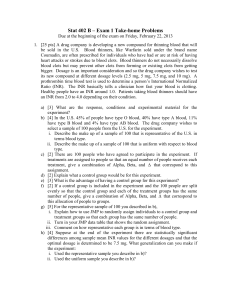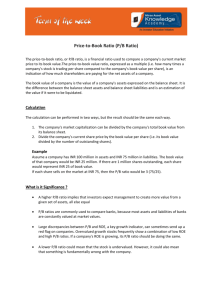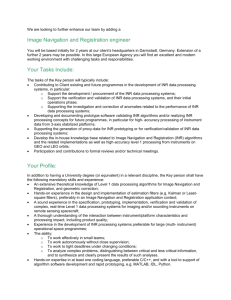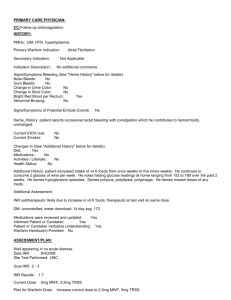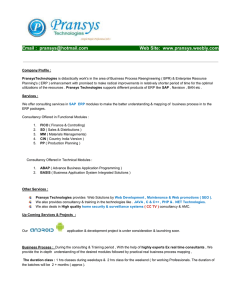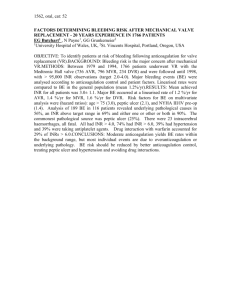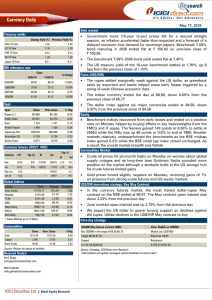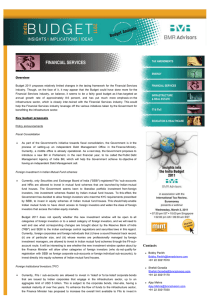Stat 402 B – Exam 1 Take-home Problems
advertisement
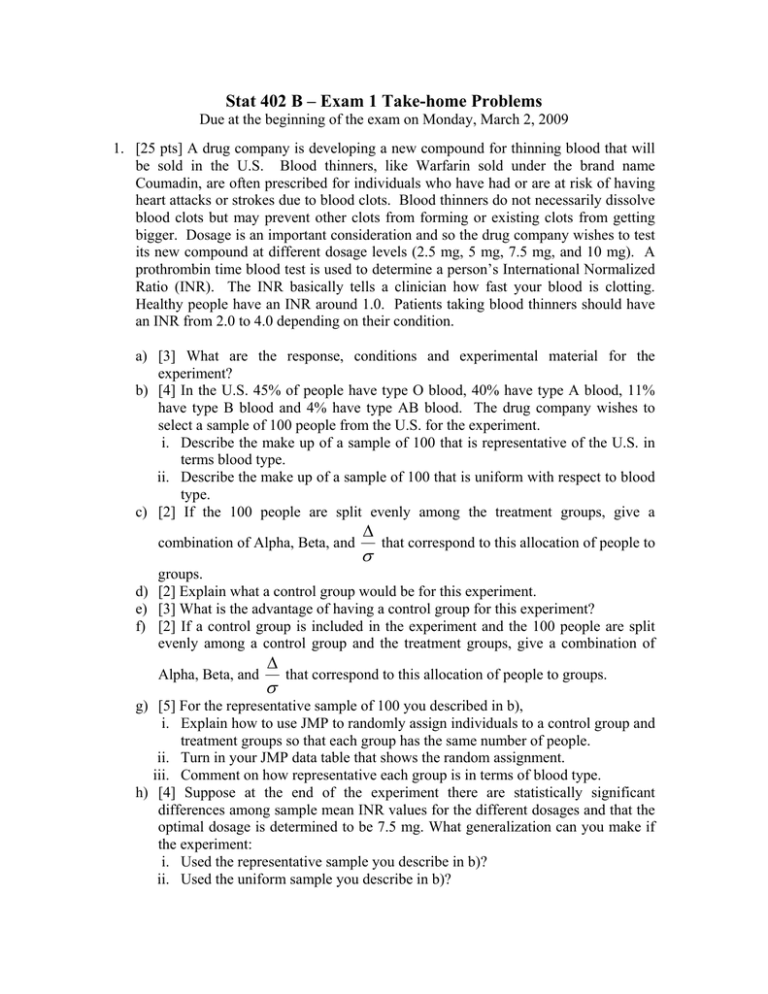
Stat 402 B – Exam 1 Take-home Problems Due at the beginning of the exam on Monday, March 2, 2009 1. [25 pts] A drug company is developing a new compound for thinning blood that will be sold in the U.S. Blood thinners, like Warfarin sold under the brand name Coumadin, are often prescribed for individuals who have had or are at risk of having heart attacks or strokes due to blood clots. Blood thinners do not necessarily dissolve blood clots but may prevent other clots from forming or existing clots from getting bigger. Dosage is an important consideration and so the drug company wishes to test its new compound at different dosage levels (2.5 mg, 5 mg, 7.5 mg, and 10 mg). A prothrombin time blood test is used to determine a person’s International Normalized Ratio (INR). The INR basically tells a clinician how fast your blood is clotting. Healthy people have an INR around 1.0. Patients taking blood thinners should have an INR from 2.0 to 4.0 depending on their condition. a) [3] What are the response, conditions and experimental material for the experiment? b) [4] In the U.S. 45% of people have type O blood, 40% have type A blood, 11% have type B blood and 4% have type AB blood. The drug company wishes to select a sample of 100 people from the U.S. for the experiment. i. Describe the make up of a sample of 100 that is representative of the U.S. in terms blood type. ii. Describe the make up of a sample of 100 that is uniform with respect to blood type. c) [2] If the 100 people are split evenly among the treatment groups, give a combination of Alpha, Beta, and Δ σ that correspond to this allocation of people to groups. d) [2] Explain what a control group would be for this experiment. e) [3] What is the advantage of having a control group for this experiment? f) [2] If a control group is included in the experiment and the 100 people are split evenly among a control group and the treatment groups, give a combination of Alpha, Beta, and Δ σ that correspond to this allocation of people to groups. g) [5] For the representative sample of 100 you described in b), i. Explain how to use JMP to randomly assign individuals to a control group and treatment groups so that each group has the same number of people. ii. Turn in your JMP data table that shows the random assignment. iii. Comment on how representative each group is in terms of blood type. h) [4] Suppose at the end of the experiment there are statistically significant differences among sample mean INR values for the different dosages and that the optimal dosage is determined to be 7.5 mg. What generalization can you make if the experiment: i. Used the representative sample you describe in b)? ii. Used the uniform sample you describe in b)?
